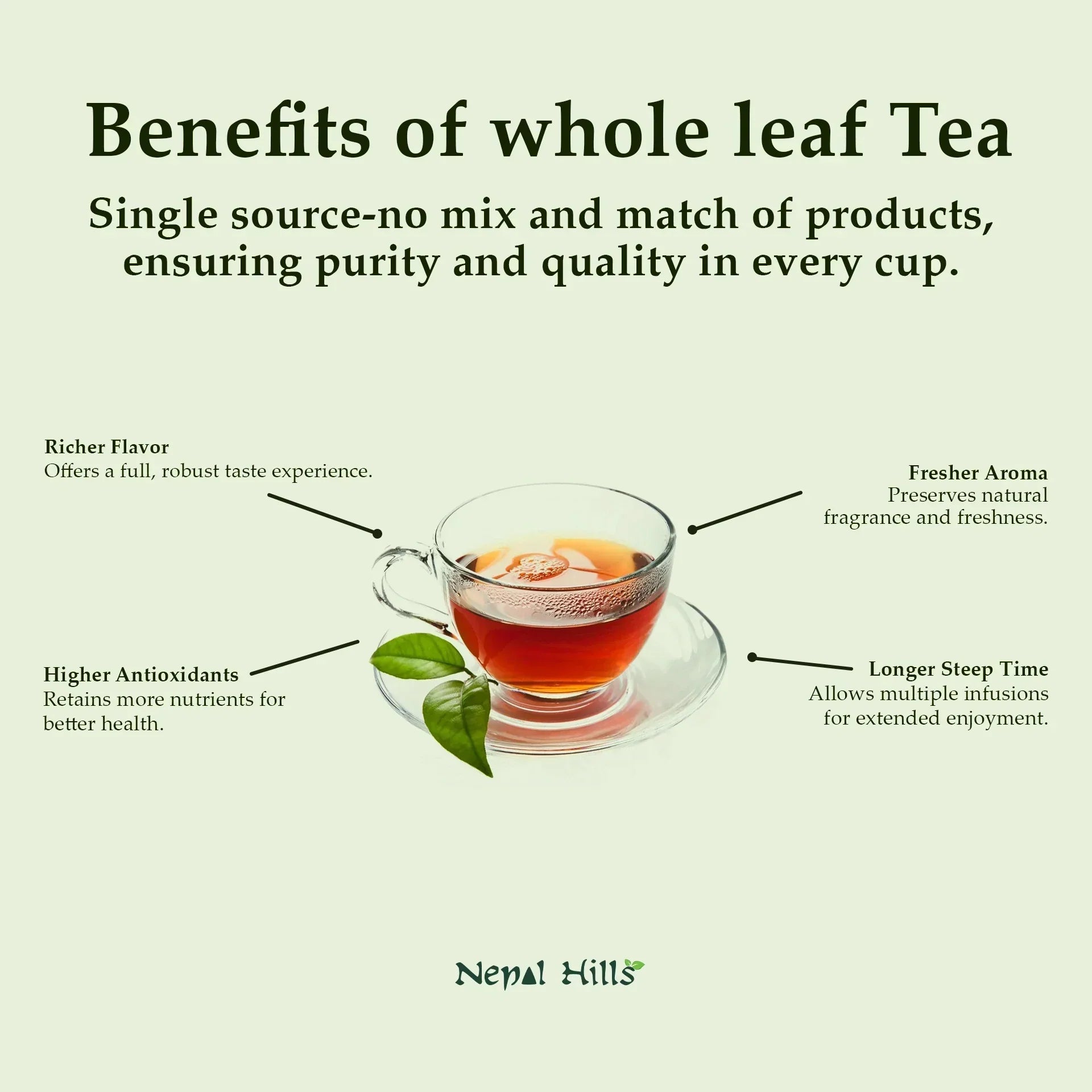Let’s talk tea. Not just any tea – the kind of tea that is really good for you. If you think tea is just another drink, you should think again. A small category of teas actually stand out, and today, we're going to discuss into what makes whole leaf organic tea from high altitudes worth your time (and taste buds).

First to start, whole leaf tea. If you’ve ever wondered why it tastes better or feels more refined, it’s because it’s less/minimally processed. One more thing to note is, it is not commercially produced and sorted. Unlike the dusty and broken stuff you find in many tea bags, whole leaf tea keeps its natural structure intact. This means you’re getting a slower, richer release of flavor and nutrients. (Think of it as the difference between fresh herbs and dried seasoning.). You can validate that by checking the quality of the steeped leaves once you pour the cup of tea.

And there’s more. Whole leaf tea is packed with antioxidants – those nifty compounds that help fight oxidative stress in your body. Research from the Journal of Nutrition and Food Science highlights that antioxidants can help manage conditions like diabetes and obesity. (If that’s not a reason to steep a cup, I don’t know what is.)
Now, onto organic tea. Why go organic? Because who wants chemicals in their cup? Organic tea is grown without synthetic pesticides or fertilizers, which is actually good for you and the environment. Plus, organic farming practices often mean better soil quality – and better soil means better tea. While direct studies comparing organic to non-organic teas are still growing, the idea of skipping harmful residues? It just makes sense.
Finally, let’s talk about the magic of high-altitude teas. If you’ve ever had tea from regions like the Himalayas, you’ll know what I mean. High-altitude conditions (cool air, intense sunlight) push tea plants to produce more polyphenols. These are the compounds responsible for tea’s health benefits – and its unique, robust flavor. (Fun fact: The same plant stress that makes these teas taste amazing also boosts their health benefits.)

And the science backs it up. A study in the Journal of Food Science and Nutrition found that the polyphenols in tea can help with heart health and inflammation. Plus, high-altitude teas often have a naturally sweet, clean taste that doesn’t need sugar. (So, fewer calories too!)
How to Make the Most of These Teas
- Choose Wisely: Look for labels that say "whole leaf," "organic," and mention their high-altitude origins. It’s worth the extra effort.
- Brew Like a Pro: Use fresh, filtered water. Follow steeping guidelines (because over-steeping can turn even the best tea bitter).
- Sip Daily: Regularly drinking tea – around 2-3 cups a day – could help unlock these health benefits. (Consistency is key.)
So there you have it. Tea that’s whole leaf, organic, and grown at high altitudes is a triple threat for your health. It’s flavorful, packed with nutrients, and grown with care. Plus, every sip supports sustainable farming and artisanal growers.
If you’re serious about tea – or just serious about your health – make this your go-to brew. It’s more than a drink; it’s a lifestyle. Now, how do you like your tea? Steeped strong or light? Let’s discuss.




